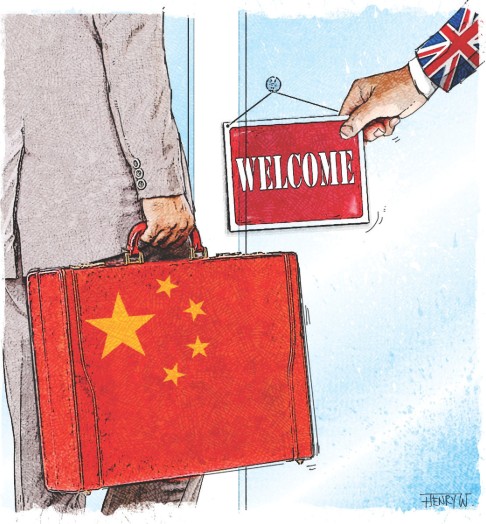
Expect bilateral deals and economic cooperation to feature in Xi Jinping's visit to Britain
Andrew Hammond says the UK knows getting on China's good side is in its own best economic interest
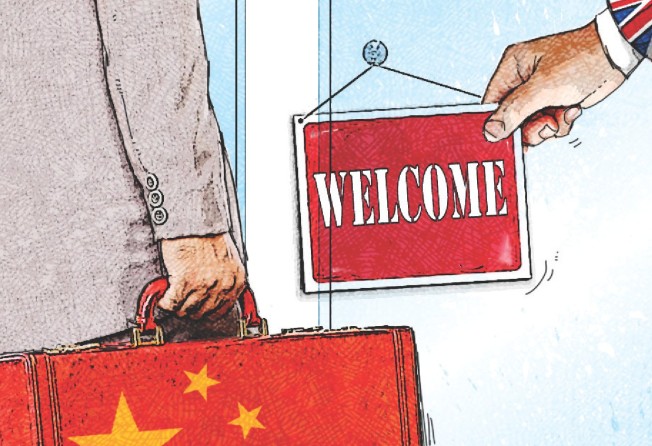

This Tuesday, President Xi Jinping begins a historic four-day trip to the United Kingdom. It is the first state visit by any Chinese president in a decade and both Beijing and London are - rhetorically at least - hailing it as a new "golden" era in bilateral ties.
The pomp that Xi will be afforded is underlined by the fact that he will be feted at Buckingham Palace, Downing Street, Chequers (the country home of the UK prime minister), and the Houses of Parliament. This will offer a genuine five-star, red-carpet treatment for the Chinese president in a way designed for maximum public relations effect.
For all that Beijing may be the more powerful partner, it is currently grateful to the UK government for placing such faith in the country at a time of mounting concerns about its health
Indeed, the UK Chancellor of the Exchequer George Osborne and leading potential successor to Prime Minister David Cameron has even pledged to make Britain "China's best partner in the West". This appears to be a concerted ambition for Osborne, personally, and has already ruffled the feathers of Washington following the UK's decision to become a founder member of the Asian Infrastructure Investment Bank (AIIB), which is being championed by Beijing as a potential alternative to the World Bank.
An unnamed senior Obama administration official was widely quoted in March to be "wary about a trend toward constant [UK] accommodation of Beijing, which is not the best way to engage a rising power". Meanwhile, an official White House statement urged London to "use its voice [in the AIIB] to push for adoption of high standards".
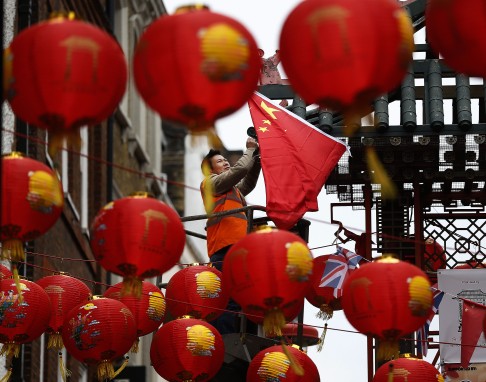
The most important element of the "new" bilateral relationship is economics. And with the visit of Indian Prime Minister Narendra Modi in November too, the UK government's key message to the outside world appears to be that the country is "open for business". In so doing, Osborne and Cameron have ratcheted down, in public at least, their human rights concerns about China, especially after bilateral relations temporarily went into a deep freeze in 2012 when the prime minister met with the Dalai Lama.
While this is not without controversy, including with Labour Party's new leader Jeremy Corbyn, who has promised to discuss human rights with Xi when they meet, there is a relatively broad political consensus in London that enhancing ties with Beijing, albeit not in an unqualified way, is in the UK national interest. Xi could be in power until the early 2020s, and, especially after the depths of the 2008-09 recession, it is widely viewed in London that there is an opportunity to develop a relationship that could make a significant contribution to UK prosperity for a generation to come.
Britain already receives the largest amount of Chinese foreign direct investment of any EU country, and it is Beijing's second largest trade partner in the European Union, after Germany. Meanwhile, China is the UK's second largest non-EU trade partner.
The pre-eminence of economics in bilateral ties will be heavily underscored in the trip. Perhaps most eye-catchingly, it will reportedly be announced that London will host a debut offshore debt sale by the People's Bank of China, and the first issue of local currency sovereign bonds outside of China and Hong Kong. Accompanying these landmark developments, Xi will apparently pledge to double trading hours in Shanghai to provide a more reliable guide to the renminbi's value during European trading hours.
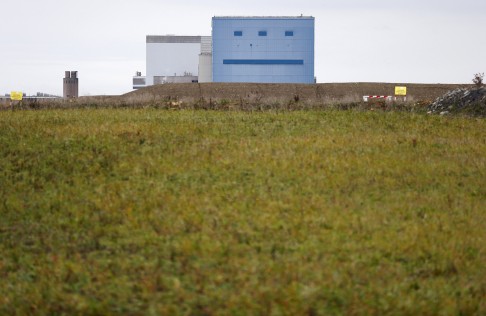
These changes have the clear potential to position London as the premier Western hub for financial interactions with Chinese markets. And for Beijing, the announcements could be a key stepping stone towards the increased internationalisation of the renminbi.
There will also be a heavy emphasis during the trip on growing Chinese inward investment into Britain, specifically transport, energy and financial services. In fact, two deals that centre on next-generation infrastructure may be announced.
Chinese firms are looking to take a significant stake in the Hinkley Point nuclear power plant, despite the potential security concerns voiced by some stakeholders. Meanwhile, investment is also being sought by London for regeneration projects in northern England, including the new High Speed 2 rail line.
British businesses are eager to gain opportunities in the massive Chinese market. A good example is in the energy arena, where the UK is well positioned as a leader in key sub-sectors, including energy management systems, offshore wind, and tackling air pollution.
The potential opening here is huge, given that China faces serious air and water pollution, and it is more reliant on imports of oil than the United States. Moreover, Beijing is committed to moving its economy away from energy-intensive, inefficient industries towards cleaner energy, and greater energy independence.
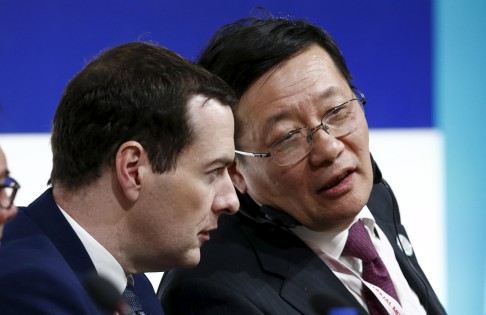
The planned Chinese domestic investments in these areas include potentially around 50 trillion yuan (HK$61 trillion) between now and 2020 for enabling urbanisation, with a focus on efficient, clean and low-carbon infrastructure. There's another expected 2-3 trillion yuan in renewable energy over the next 10 years; around 466 billion yuan in ultra-high-voltage transmission; and about 4 trillion yuan on "smart grids".
For many, it might appear that the bilateral relationship is overwhelmingly one-way traffic, especially given the Chinese economy is now a multiple of that of Britain's. However, for all that Beijing may be the more powerful partner, it is currently grateful to the UK government for placing such faith in the country at a time of mounting international concerns about its health.
Osborne, in particular, has made a big deal of the fact that London and Beijing will "stick together", and made a high-profile trip to China last month. The appreciation of Beijing is reflected here, in part, by the fact that Xi has decided to make his multi-day trip solely to Britain, rather than calling in on multiple countries along the way, as is often the case with his overseas travel.
Taken overall, the growing warmth of ties is not without controversy, both domestically and internationally. However, Xi's visit is likely to prove a success and will reinforce the dominance of economics in bilateral relations.
Andrew Hammond is an associate at LSE Ideas (the Centre for International Affairs, Diplomacy and Strategy) at the London School of Economics, and a former UK government special adviser